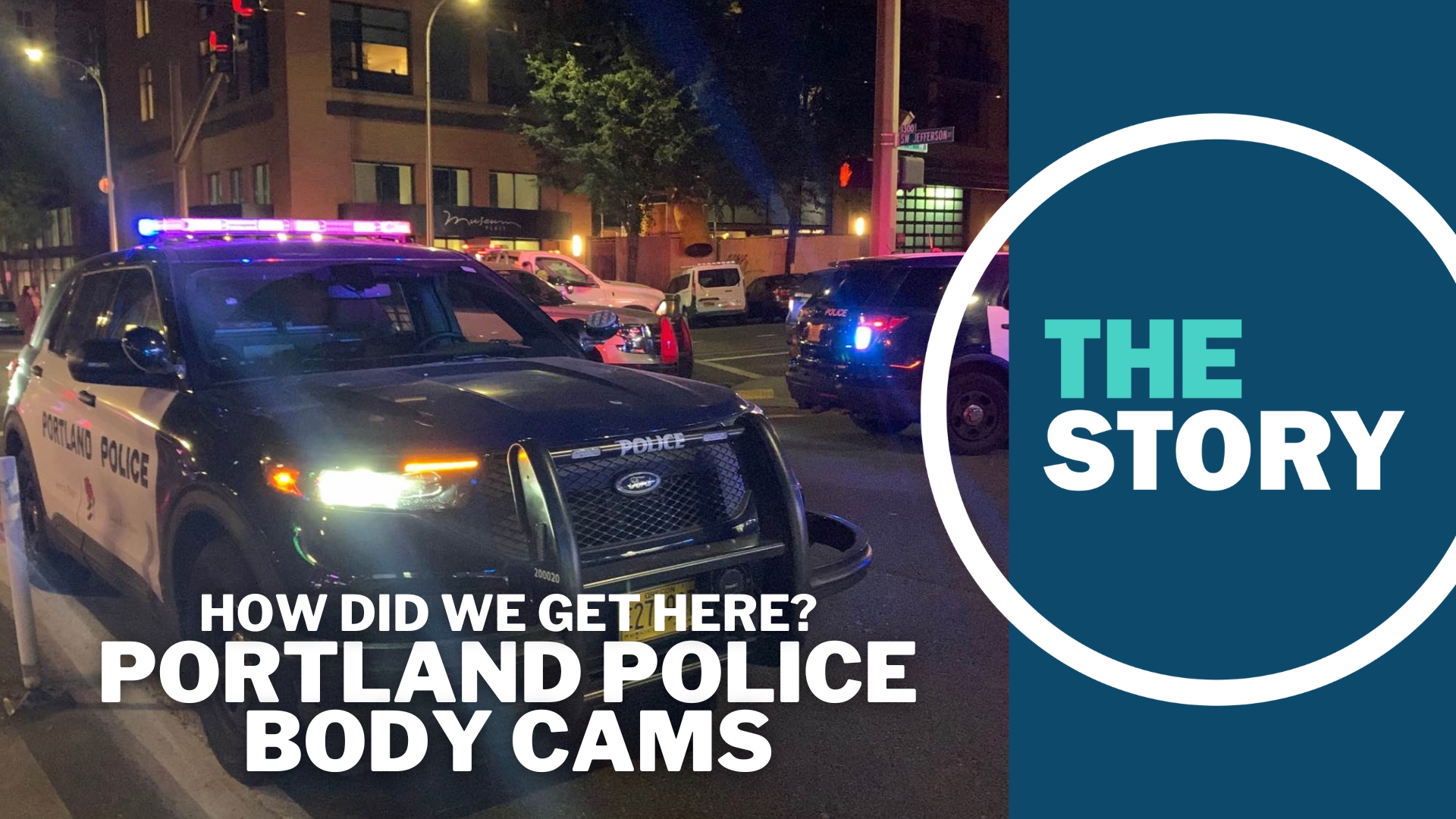PORTLAND, Ore. — The death of Tyre Nichols after being beaten by Memphis police officers has again revived the issue of police violence and accountability in the U.S. Most of the events that led to Nichols' death were captured on police body-worn cameras, providing the public with graphic proof of what happened.
While the presence of those cameras didn't seem to stop any of the involved officers from beating Nichols, the footage will undoubtedly play a large role in their prosecution.
But here in Portland, police officers still don't have body cams. As KGW investigative reporter Kyle Iboshi detailed back in 2021, that fact makes Portland the largest city in the U.S. without a city police force equipped with body cams.
It isn't for a lack of trying. Bringing body cams to Portland has been a long process, one that's been repeatedly stalled.
In the fall of 2014, a federal judge urged the City of Portland to equip officers with body cams, something the U.S. Department of Justice requested. Then-Mayor Charlie Hales agreed, and the Portland Police Bureau set aside some funding for the proposal while holding community hearings.
By 2015, things seemed to be cruising right along. The Oregon legislature passed a bill that created statewide standards for the use of body cams. Portland City Council set aside more than $830,000 toward installing dash cams in police vehicles, while pledging another $1.6 million to fund the body cam program through the next fiscal year.
But the next year, new Mayor Ted Wheeler questioned if the body cam project was feasible and asked PPB for a detailed plan, including how much the whole thing would cost.
Mike Marshman, then-chief at PPB, summed it up by saying, "That's in a nutshell why we don't have body cameras today."
Body cams went on the backburner for a few more years. But in January of 2019, there was another opportunity to jump on the idea. PPB formed a team to finally come up with the detailed plan that Wheeler wanted to see. In February, the city held listening sessions.
A year later, in early 2020, then-Chief Jamie Resch said she supported body cams and hoped to see a pilot program launched in the near future.
The whole thing got upended when the COVID-19 pandemic hit, blowing out Portland's budget. The body cam pilot project joined a number of other things on the drawing board.
Finally, in 2022, Portland had the money to bring back the body cam idea and the city council passed the needed funding. City officials had vendors bid on a $2.6 million contract to cover both a pilot program and full implementation.
The contract was awarded to the Axon company, which will run the pilot program. PPB said it hopes to have the system up and running by the end of 2023.
But that's still not the end of the story. There remains an ongoing argument between the city and the Portland Police Association, the officers union.
One point of contention is that the union wants officers to be able to consult their body cam video before writing their reports. The city and the Justice Department don't want officers to be able to write their reports after watching the video.
Investigative reporter Kyle Iboshi said that the union has argued that viewing the video will make reports more accurate. However, civil rights activists argue that it will allow officers to craft their stories around what the video shows.
Most law enforcement agencies in Oregon do allow officers to consult their video first, Iboshi said, and that includes Oregon State Police and the Gresham, Forest Grove, Beaverton and Eugene police departments.

